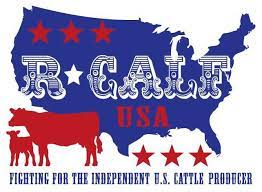Commentary by Bill Bullard, CEO, R-CALF USA
Whether you believe it was ever a good idea for the United States to cede its sovereignty to the World Trade Organization (WTO) to resolve nation-to-nation global trade disputes, it remains clear that the only way the WTO could effectively resolve trade disputes among sovereign nations is if the WTO was viewed as credible and trustworthy, and if nations believed their participation in the WTO was mutually beneficial.
In other words, the United States voluntarily chooses to participate in the WTO dispute settlement process, and voluntarily chooses whether to abide by the WTO’s decisions. This is because no decision by the WTO has any force of law in the United States.
Now this means that when the WTO rules against the United States and urges the U.S. to repeal or modify its laws, it is at the United States sole discretion whether to abide by the WTO’s request.
But built into the WTO rules is a coercive mechanism enabling the WTO to gain leverage with which to force compliance through non-legal means.
And that non-legal means includes granting approval to prevailing nations to institute retaliatory tariffs. Retaliatory tariffs work like this: If a losing nation does not comply with the WTO’s decision, the WTO can permit the prevailing nation to apply tariffs on a variety of products imported from the losing nation. The theory is this: When a prevailing nation puts tariffs on other products exported by the losing nation, then the exporters of those products, who were not a party to the dispute, would be expected to lobby Congress to force compliance with the WTO. That’s because those retaliatory tariffs on other imports can render those imports noncompetitive within the country’s market.
So that’s exactly how things were supposed to work in the WTO dispute regarding the United States’ mandatory country of origin labeling law, or MCOOL for beef: The WTO ruled against the U.S. and urged repeal of the MCOOL law, and it granted Canada and Mexico permission to institute retaliatory tariffs in an amount over $1 billion to gain coercive leverage over the United States. And that’s all it took for Congress to voluntarily cede its sovereignty over its right to pass a domestic labeling law for U.S. citizens. Congress repealed MCOOL for beef even though the retaliatory tariffs were never invoked.
But right after the WTO’s adverse MCOOL decision, the WTO imploded – it lost its credibility, it became untrustworthy, and it wiped out any mutual benefits the United States expected.
In fact, the United States cited the WTO’s ruling on MCOOL and just two other disputes as evidence of the WTO’s malfeasance.
The United States strongly admonished the WTO after the MCOOL ruling and stated that the WTO:
- Addresses issues it has no authority to address.
- Takes actions it has no authority to take.
- Improperly interprets and violates trade rules.
- Overreaches in contradiction to its limited mandate.
- Violates basic principles of the United States Government.
- Transfers authority over international trade from sovereign nations to itself.
- Invented an improper legal standard to rule against the U.S.
These are the reasons the current Administration, and the two Administrations before it, have disabled the WTO, relinquishing it of its role as a credible international dispute settlement organization and relegating it to effectively be only an arbitrator of disputes.
And now Congress has weighed in to further disabled the WTO. It has disregarded what was once a flagship global trade rule standard – the national treatment standard that says no country can treat imported products less favorably than it treats domestic products. But that’s exactly what Congress did when it effectively placed a $7,500 tariff on electric vehicles not manufactured in North America.
Look too at what the United States has done by implementing tariffs on steel and aluminum in disregard of what we must now call archaic and inappropriate WTO trade rules.
And look at what the United States is doing after losing its auto parts dispute under the U.S.-Mexico-Canada Agreement (USMCA). It’s thumbing its nose at the adverse ruling.
Why is the United States aggressively striking out on its own despite the global-group-hug posturing it maintained for decades?
The answer is simple: The United States finally understands that its role is to protect the national interests of the United States and that goal cannot be accomplished under the old-world order.
It’s time for every member of Congress to catch up with the new order, to stand with the American people and stop kowtowing to the global elites at the WTO who do not share the goal of doing what’s right for America.
The first thing members of Congress should do is cosponsor the American Beef Labeling Act so American consumers can start supporting America’s food supply chain.
Source: R-CALF USA















